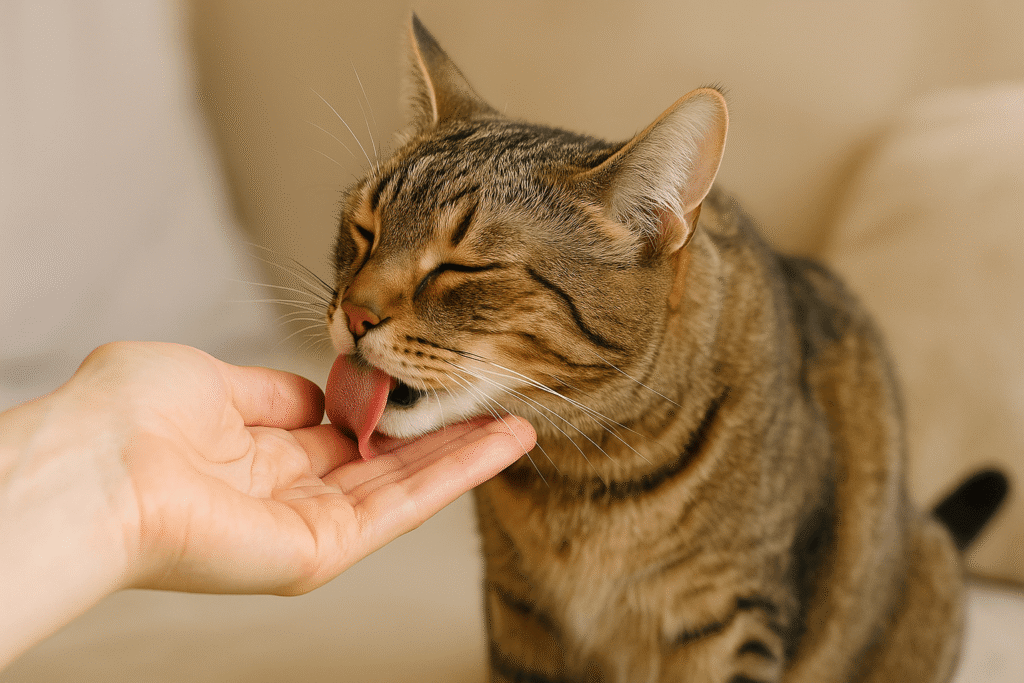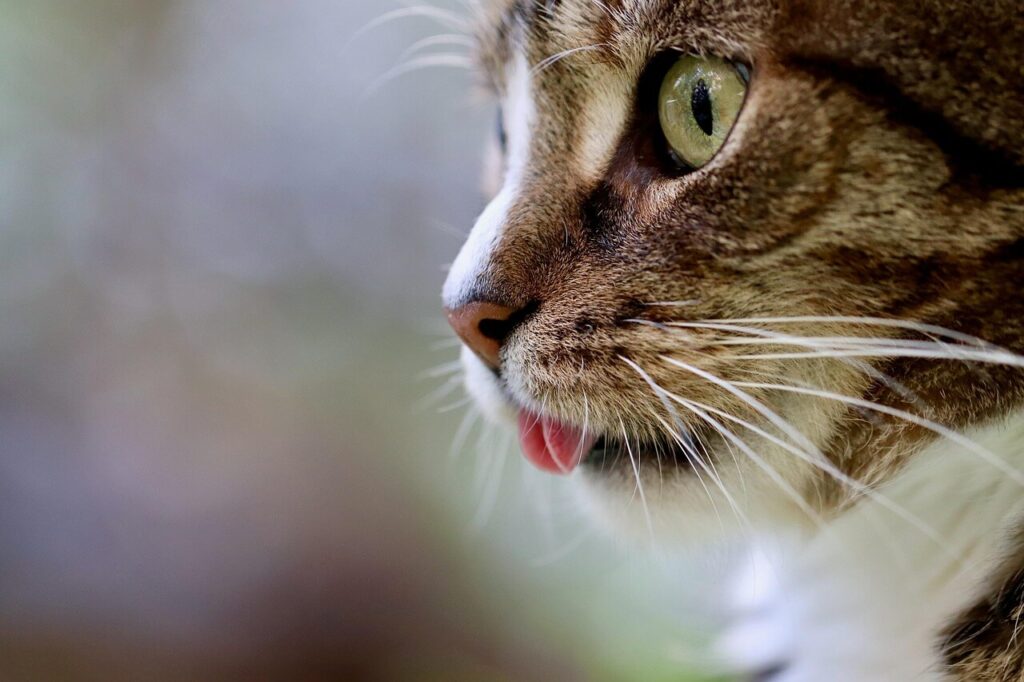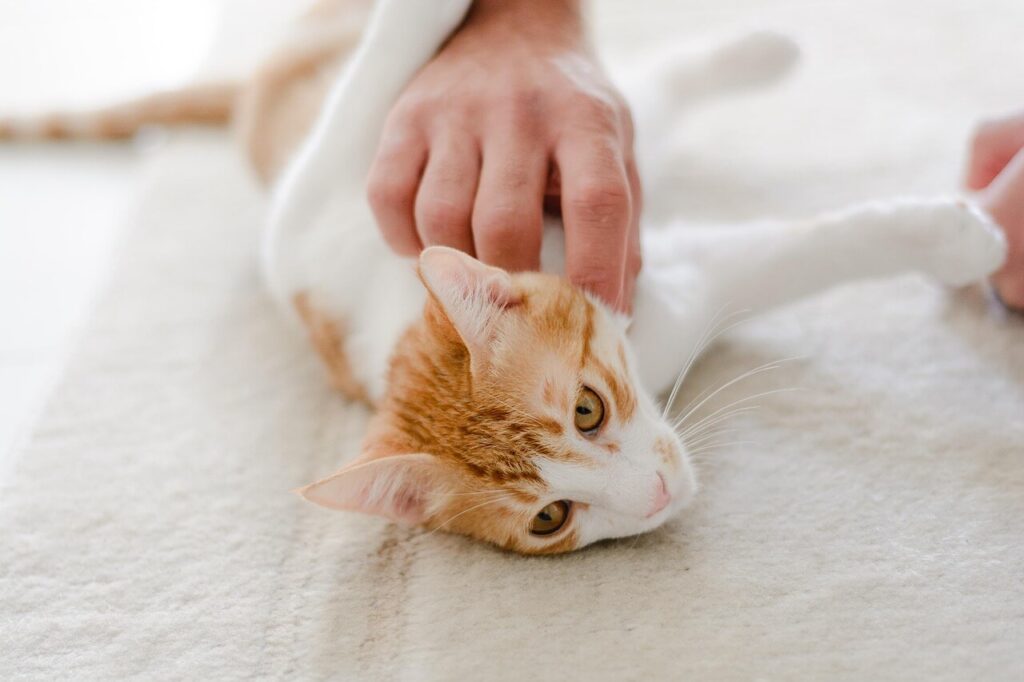Why Does My Cat Lick Me? Understanding Feline Behavior
If you’ve ever found yourself being licked by your cat, you might have wondered what it means. While this behavior can be surprising—or even ticklish—there are actually several important reasons why cats lick their humans. From affection to anxiety, licking serves many purposes in a cat’s world. Understanding this behavior can help you strengthen your bond and identify your cat’s emotional needs.
1. Affection and Social Bonding
One of the most common reasons cats lick their owners is to show affection. In the wild, cats groom one another as a way to build trust and reinforce social bonds. When your cat licks you, it’s often mimicking this natural behavior. It’s their way of saying, “You’re part of my family.”
💡 Tip: Accepting your cat’s affectionate grooming can build trust and comfort between you both.

2. Marking You as Their Territory
Cats have scent glands in their paws and mouths, and licking can be a subtle way of marking you as theirs. By leaving their scent on you, your cat is claiming you as part of their territory. This is especially common in multi-pet households where competition for attention may exist.
3. Attention-Seeking Behavior
If your cat licks you and then stares, meows, or rubs against you, they may be trying to get your attention. This could be for playtime, food, or simply interaction. Cats are smart—they learn what behaviors prompt a response from their favorite humans.

4. Stress or Anxiety Relief
Licking can be a self-soothing behavior, especially in cats experiencing stress, boredom, or anxiety. This is similar to how humans bite their nails or fidget. If your cat suddenly starts licking more than usual, consider any changes in the environment, such as new pets, visitors, or changes to their routine.
💡 Tip: Introducing calming routines or providing extra enrichment can help reduce stress-related behaviors.
5. Grooming You as Part of the Family
Your cat might simply be trying to groom you. Cats groom each other as a way to care for members of their group. If your cat licks your skin, hair, or even your clothes, it may be treating you like one of its own—especially if it also purrs while doing so.
6. Taste and Texture Curiosity
Human skin can be salty from sweat, and some cats enjoy the taste. Others may be curious about lotions, soaps, or scents you’ve recently applied. If your cat’s licking is targeted to specific areas after a shower or workout, this might be the reason.

7. Early Weaning or Behavioral Conditioning
Some cats who were separated from their mothers too early may develop oral fixations, including excessive licking or suckling. It becomes a comfort-seeking behavior that helps them feel secure. While usually harmless, it can become a habit if reinforced.
When to Be Concerned About Excessive Licking
While occasional licking is completely normal, excessive or compulsive licking may indicate stress, boredom, or a medical issue. Watch for other signs of anxiety or illness, such as pacing, vocalizing, or changes in appetite. If licking becomes obsessive or starts to irritate your skin, it’s worth consulting a veterinarian or animal behaviorist.
💡 Tip: Redirection with toys, playtime, or interactive feeders can reduce over-licking and provide mental stimulation.
Final Thoughts
Cats lick their owners for a variety of reasons—from love and bonding to stress relief and curiosity. By understanding the motivation behind the behavior, you can respond appropriately and ensure your cat’s needs are met. Whether it’s a sweet grooming gesture or a cry for attention, each lick carries a message.